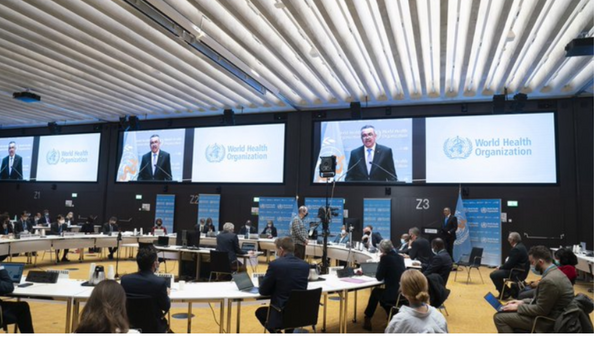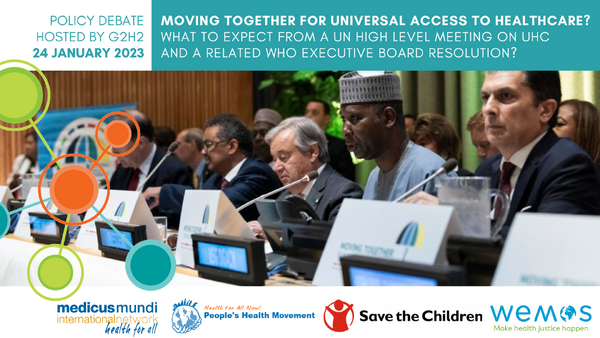1973 haben eine Hand voll Schweizer Organisationen der
internationalen Gesundheitszusammenarbeit und das Schweizer Tropeninstitut in
Basel das Netzwerk Medicus Mundi Schweiz gegründet. Was vor 50 Jahren zunächst
mit dem Zweck ins Leben gerufen wurde, Ärztinnen und Ärzte gemeinsam für ihren
Einsatz in der – wie es damals geheissen hat – 3. Welt vorzubereiten, ist es heute
ein Netzwerk mit rund 50 Mitgliedsorganisationen und wissenschaftlichen
Institutionen. MMS bringt das geballte Wissen dieser Organisationen zusammen,
ermöglicht Wissens- und Lernprozesse, welche die Arbeit zugunsten des Rechts
auf Gesundheit weltweit vorantreibt, und führen den politischen Dialog in der
Schweiz zu Themen der globalen Gesundheit, damit die hiesigen Akteur:innen ihre
Verantwortung wahrnehmen, damit das Recht auf Gesundheit erreicht wird.
Im Jubiläumsjahr werden wir stolz die hohe Relevanz sichtbar machen – wir wären aber nicht MMS, wenn wir den Anlass nicht auch mutig zur selbstkritischen Reflexion nutzen würden. Wir wollen genauer hinschauen, woher wir als Sektor kommen und welche Rolle die Zivilgesellschaft in der internationalen Gesundheitszusammenarbeit heute und in Zukunft spielt.
Dekolonisierung
Die historischen Wurzeln der internationalen Gesundheitszusammenarbeit und globalen Gesundheit sind uns sehr bewusst. Im vergangenen Jahr haben wir einen Round Table zur Dekolonisierung in der internationalen Zusammenarbeit durchgeführt und im Dezember eine aufschlussreiche Ausgabe des MMS Bulletins zum Thema publiziert. Mit einem Bericht wollen wir nun der Frage nachgehen, wohin sich der Sektor bewegt, wie dekolonisierte Zusammenarbeitsmodelle der Zukunft aussehen könnten und wie sich unsere Mitglieder auf diesen Wandel vorbereiten.
Am 2. November 2023 werden wir an unserem Jubiläumssymposium die Ergebnisse auch mit einer breiten Öffentlichkeit diskutieren. Dabei bauen wir auch auf unser internationales Netzwerk Medicus Mundi International, welches dieses Jahr seinen 60. Geburtstag feiert.
Martin Leschhorn Strebel
Netzwerk Medicus Mundi Schweiz
E-Mail













































